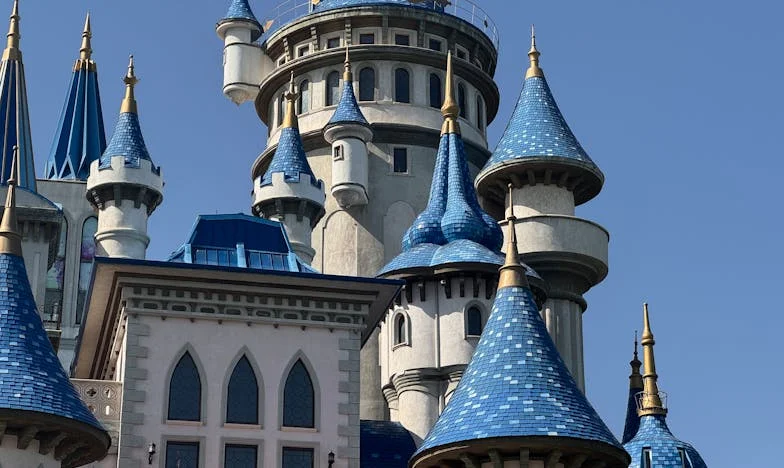Sixty and Unseen: How Losing Everything Gave Me Back My Life
“You’re not coming for Thanksgiving? Not even for a day?” My voice cracked, and I hated myself for the plea in it. The phone trembled in my hand as I listened to the silence on the other end.
“Mom, we just can’t make it this year. Jen’s folks want us to stay, and the kids have soccer tournaments. I’m sorry, alright?”
My son’s words settled over me like the first frost, silent and cold. I tried to swallow the loneliness rising in my throat, but the taste was bitter. I forced a laugh—too bright, too fake. “No worries, honey. Tell the kids I love them.”
When I hung up, I stared at the empty kitchen. The refrigerator hummed; the clock ticked. I’d never realized how deafening the quiet could be. Sixty years old, and it felt like I’d been erased. My marriage had ended ten years ago, my daughter lived across the country in Seattle, and my son, well, he was always busy. My friends called less and less, our conversations growing shorter, filled with awkward silences and half-hearted promises to meet “soon.”
I used to matter. I was the engine that drove this family—a mother, a wife, a friend. My days were filled with PTA meetings, birthday parties, last-minute science projects, and working late at the hospital. Now, my days stretched out before me like a flat Midwest highway: endless, empty, and predictable.
One November morning, as I sat staring out the window at the rain, my neighbor Cheryl knocked on my door. She had always been the type to show up with a casserole and a story, but today, she just looked tired. “My daughter just moved to California,” she said, her voice shaky. “I guess we’re both in the same boat.”
We sat at my kitchen table, two women in their sixties, sipping coffee and circling around the thing neither of us wanted to say: we felt invisible. Cheryl confessed, “Some days, I feel like I could disappear, and nobody would notice.”
I wanted to reassure her, but I couldn’t. I understood her fear too well.
The days rolled by. I watched my friends’ lives unfold on Facebook—grandkids, cruises, dinner parties. Meanwhile, I bought groceries for one, ate microwaved meals, and waited for my phone to ring. Sometimes, the silence made me angry. I’d raised two kids, survived cancer, worked overtime so my family could have a better life. Was this my reward? Was I really no longer needed?
One night, I found myself digging through old boxes in the attic, searching for—what, exactly? Proof that I’d mattered? I found a faded photograph of my younger self at Yellowstone, grinning beside a tent, mud streaked on my jeans, hair wild and free. I barely recognized her. When had I last done something just because I wanted to?
The next morning, I sat in my car outside the local community center, heart thudding. A flyer had caught my eye: “Beginner’s Painting Class. All Ages Welcome.” I hadn’t painted since college. I almost drove away—but then I remembered that girl in the photograph. She hadn’t been afraid of anything.
Inside, the classroom was filled with women and men, most of them retirees, some younger, all strangers. The instructor, a cheerful woman named Denise, handed me a blank canvas and a brush. My hands shook as I dipped the brush in paint. For two hours, I lost myself in color and movement, my worries dissolving with every stroke.
After class, Denise smiled at me. “You have a natural touch. You should come back.”
I did. Every week. I painted landscapes, portraits, wild, messy abstracts. For the first time in years, I felt awake. I made friends—real friends, not just the people I’d known from my kids’ school years. We laughed, shared stories, and even went out for coffee after class. I wasn’t just filling time; I was living.
One afternoon, Cheryl called. “You sound different,” she said. “Happier.”
I invited her to join the class. She hesitated, but eventually, she came. We started a ritual: painting, then pie at the local diner. We talked about our marriages, our disappointments, and the strange relief we felt at being responsible for no one but ourselves.
My children still called, but I stopped waiting by the phone. I learned to say no to things I didn’t want to do, and yes to things that scared me. I joined a hiking group, took a weekend trip to Maine by myself, and even went on a few awkward first dates. Each step was terrifying—and exhilarating.
One evening, my daughter called. “Mom, are you okay? You seem… different.”
I laughed. “I think I am. I’m finally living for me.”
She was quiet for a moment. “I’m proud of you.”
I realized, then, that I didn’t need to be needed to matter. My worth wasn’t tied to how many people relied on me. I could choose my own happiness, at any age.
Now, when I look in the mirror, I see more than the lines on my face. I see strength. I see possibility. I see that girl at Yellowstone, mud on her jeans, ready for adventure.
So tell me—when was the last time you did something just for you? Are you living, or just waiting to be needed again?
